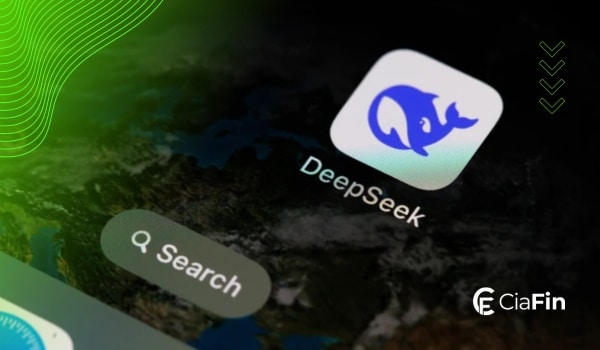In the ever-evolving realm of artificial intelligence, AI DeepSeek stands out as a trailblazer, transforming how businesses approach data management and protection. As the digital landscape continues to expand, understanding the implications of data protection legislation becomes increasingly vital. AI DeepSeek not only empowers industries with its advanced capabilities but also ensures adherence to complex legal frameworks like GDPR and CCPA.
From anonymizing data to enhancing operational efficiency, AI DeepSeek offers a robust solution for navigating the intricate web of data protection laws. By keeping user privacy intact and optimizing data usage, it helps organizations maintain competitive edges without sacrificing compliance. Beyond security, AI DeepSeek paves the way for cutting-edge innovation, highlighting the delicate balance between technological advancement and legal adherence.
Understanding AI DeepSeek
AI DeepSeek is at the forefront of AI technology, designed to swiftly process and interpret massive datasets with unmatched precision. As data protection laws become more stringent, understanding these tools within the legal landscape is crucial. By utilizing complex algorithms, AI DeepSeek ensures compliance while extracting valuable insights, safeguarding privacy through anonymization techniques, and minimizing breach risks.
A significant feature of AI DeepSeek is its ability to anonymize personal information, reducing potential breaches while allowing businesses to harness data insights. This feature aligns with data protection regulations, providing businesses peace of mind when handling sensitive information.
Moreover, AI DeepSeek offers companies the potential to optimize operations by analyzing patterns and trends. With data sovereignty becoming a focal point, mastering tools like AI DeepSeek is essential for businesses seeking a competitive edge. Successfully balancing innovation with compliance protects organizations from potential fines and reputational damage linked to non-compliance, ensuring a secure future in AI.
Key Features and Benefits
Data protection legislation introduces several critical features and benefits for businesses and individuals. A significant advantage is the enhancement of data security protocols, safeguarding personal and sensitive information against breaches and unauthorized use.
Legislations often require organizations to be more transparent about data collection and usage, fostering trust between companies and consumers. This transparency reassures individuals about the handling of their data, enhancing their confidence.
Furthermore, clear compliance standards help organizations streamline data management, reducing the risk of non-compliance penalties while boosting operational efficiency. Such standards enable better management and use of data, aligning with legal requirements.
Data protection laws empower individuals with more control over their personal data. Rights like access, correction, and deletion allow individuals to manage their privacy effectively, fostering a culture of respect for personal information.
Globally, aligning data protection standards promotes a harmonious international approach, making cross-border operations easier. This benefits businesses by aiding global trade and cooperation, fostering an environment where companies can thrive internationally with fewer legal hurdles.

Applications in Various Industries
In healthcare, data protection legislation is crucial for maintaining patient confidentiality. Compliance with laws like HIPAA secures patient information, building trust between providers and patients. Secure handling of data enhances patients’ confidence in healthcare systems, improving overall healthcare quality.
Retailers encounter challenges in managing customer data safely. With online transactions on the rise, robust data protection measures are essential to prevent breaches and identity theft. Compliance with data protection laws helps retailers build a reputation for safety and reliability.
The finance sector is heavily regulated to protect sensitive financial data. Compliance with GDPR and CCPA ensures secure handling of consumer information, promoting a secure banking environment. Adhering to these regulations bolsters client confidence and enhances the overall trust in financial institutions.
In education, managing student records requires stringent data protection. Schools and universities must comply with regulations to maintain the confidentiality of students’ personal information, crucial in sustaining trust with students and parents, particularly with the rise of e-learning platforms.
Future Prospects and Predictions
The future of data protection legislation is poised for transformation as technology advances. AI and machine learning advancements compel regulatory bodies to adapt without stifling innovation. As data becomes integral to operations, companies will face increased scrutiny over their handling practices, demanding robust management systems.
Predictions suggest a move toward global data protection standards for streamlined cross-border data transfers, enhancing global privacy initiatives. Businesses must adapt strategies to cope with jurisdictional differences, fostering international growth despite varying privacy laws.
Furthermore, technologies like blockchain and advanced encryption methods will shape future data protection enforcement. These innovations offer enhanced security but present new challenges in legislative compliance.



 The Best Allowance and Chore Apps for Kids <p class='sec-title' style='line-height: normal; font-weight: normal;font-size: 16px !important; text-align: left;margin-top: 8px;margin-bottom: 0px !important;'>Teaching children about money and responsibilities is a crucial part of parenting, yet it can be quite a challenge. Simplify chores and teach money management in a fun way!</p>
The Best Allowance and Chore Apps for Kids <p class='sec-title' style='line-height: normal; font-weight: normal;font-size: 16px !important; text-align: left;margin-top: 8px;margin-bottom: 0px !important;'>Teaching children about money and responsibilities is a crucial part of parenting, yet it can be quite a challenge. Simplify chores and teach money management in a fun way!</p>  Cheapest Car Insurance USA <p class='sec-title' style='line-height: normal; font-weight: normal;font-size: 16px !important; text-align: left;margin-top: 8px;margin-bottom: 0px !important;'>Car insurance is a necessary expense for anyone who owns a vehicle in the United States.</p>
Cheapest Car Insurance USA <p class='sec-title' style='line-height: normal; font-weight: normal;font-size: 16px !important; text-align: left;margin-top: 8px;margin-bottom: 0px !important;'>Car insurance is a necessary expense for anyone who owns a vehicle in the United States.</p>  Unlock the Power of Weekly Free Credit Reports <p class='sec-title' style='line-height: normal; font-weight: normal;font-size: 16px !important; text-align: left;margin-top: 8px;margin-bottom: 0px !important;'>Get informed, stay secure, and boost your financial health with ease!</p>
Unlock the Power of Weekly Free Credit Reports <p class='sec-title' style='line-height: normal; font-weight: normal;font-size: 16px !important; text-align: left;margin-top: 8px;margin-bottom: 0px !important;'>Get informed, stay secure, and boost your financial health with ease!</p>